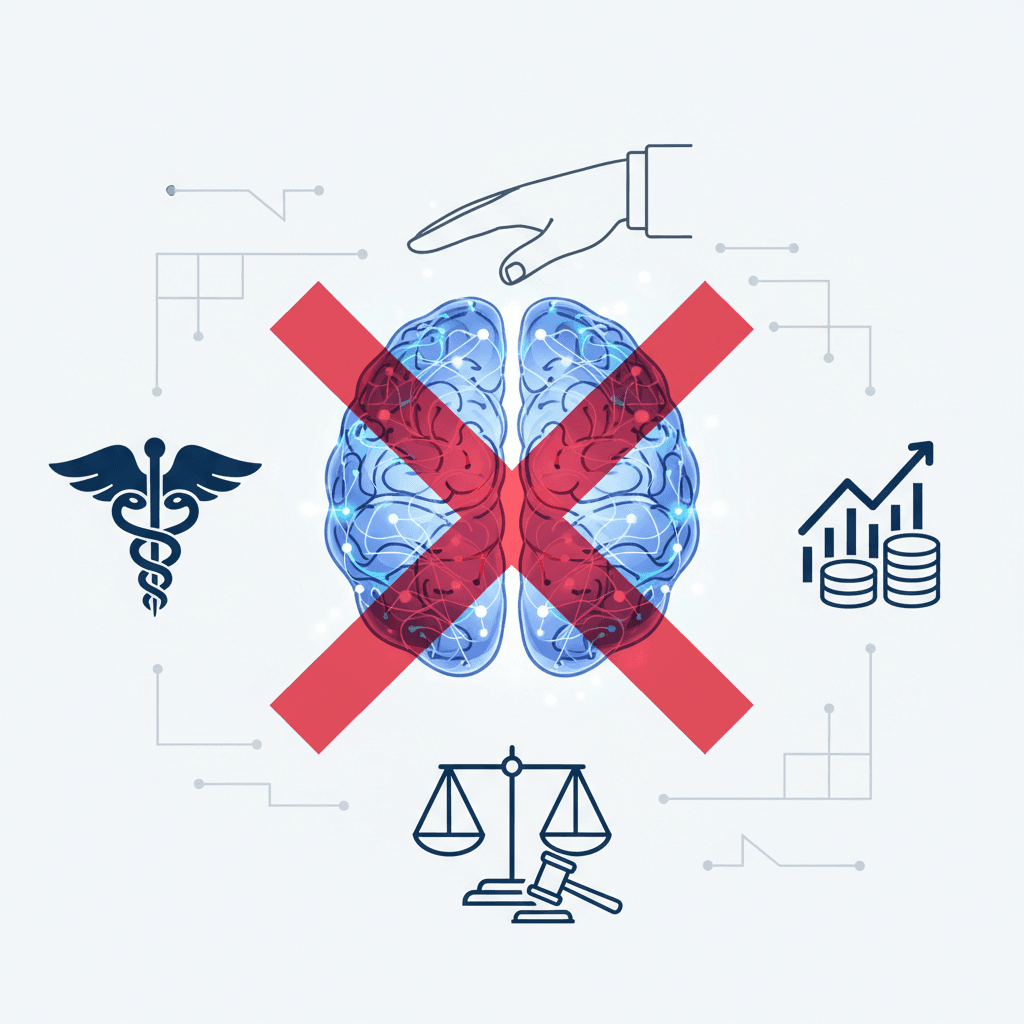OpenAI Forces AI Reckoning: Bans ChatGPT's Medical, Legal Advice
OpenAI reframes ChatGPT's role from direct advisor to educational tool, driven by liability and a maturing AI regulatory landscape.
November 3, 2025

In a significant move signaling a new era of caution in the artificial intelligence sector, OpenAI has updated its usage policies to prohibit its popular chatbot, ChatGPT, from providing specific medical and legal advice. This policy revision marks a decisive step away from positioning the large language model as a versatile consultant and reframes it as an "educational tool," a change driven by escalating concerns over liability and a rapidly evolving global regulatory landscape. The update underscores a critical maturation point for the AI industry, forcing a reckoning with the real-world consequences of deploying powerful, yet fallible, technology in high-stakes professional domains where licensed expertise is paramount.
The core of the policy change, last updated on October 29, is an explicit ban on using the service for the "provision of tailored advice that requires a license, such as legal or medical advice, without appropriate involvement by a licensed professional."[1][2] Consequently, ChatGPT will no longer offer specific medication names or dosages, generate templates for lawsuits, or provide personalized investment strategies. Instead, when prompted with queries that cross into these restricted areas, the system is designed to direct users to consult qualified human professionals.[3][1] This restriction extends beyond just medicine and law to include financial decision-making and other critical areas like housing and employment, where expert guidance is crucial.[3][4] The change is not merely a disclaimer; users have observed that strengthened safety filters are now more effective at blocking attempts to solicit prohibited advice, even when questions are framed as hypotheticals.[3][4] This technical enforcement of the policy represents a firm boundary-setting by OpenAI, aimed at preventing its technology from being used in ways that exceed its intended capabilities and ensuring user safety.[4][5]
The primary impetus behind this strategic retreat is the immense legal and financial risk associated with dispensing incorrect professional advice.[1] As AI models like ChatGPT have grown in popularity, so has the public's tendency to turn to them for quick answers on complex health and legal matters, a trend that experts have flagged for its serious ethical and safety implications.[4] Unlike licensed professionals, AI chatbots are not bound by duties of care, and conversations are not protected by privileges like doctor-patient confidentiality.[3] The well-documented phenomenon of AI "hallucination," where models generate confident but entirely false information, poses a catastrophic risk in these fields.[6][7][8] Instances of lawyers citing fabricated legal cases generated by AI in actual court filings have already highlighted the potential for significant harm and professional misconduct.[9] By formally banning such uses, OpenAI is attempting to shield itself from liability and prevent the misuse of its platform, which was never designed or certified as a medical or legal tool.[10][6] This move also aligns the company with emerging global regulatory frameworks, most notably the European Union's AI Act, which categorizes AI systems used in critical sectors like healthcare as "high-risk" and imposes stringent requirements for safety, transparency, and human oversight.[11][12]
The implications of this policy shift are far-reaching, impacting both users and the broader AI industry. For users who had come to rely on ChatGPT for initial guidance or to save on professional fees, the change may be seen as a reduction in the tool's utility.[11] Some have praised the AI for its ability to explain complex legal topics or provide insights into chronic illnesses that they felt were not adequately addressed by human doctors.[11] However, the update serves as a critical reminder of the technology's limitations and the irreplaceable value of certified human expertise. For the AI industry, OpenAI's decision sets a significant precedent. It signals a move away from the unbridled expansion of AI capabilities toward a more responsible and risk-aware phase of development. As regulators worldwide intensify their scrutiny of artificial intelligence, other developers of large language models are likely to follow suit, implementing similar guardrails to manage their own liability exposure. This shift will likely accelerate the development of AI as a decision-support tool meant to augment professionals by performing tasks like summarizing research or drafting documents under expert supervision, rather than acting as an autonomous advisor to the public.[13]
In conclusion, OpenAI's decision to bar ChatGPT from dispensing medical and legal advice is a landmark event in the ongoing integration of artificial intelligence into society. It is a pragmatic response to the profound legal and ethical challenges posed by AI in sensitive professional fields. While curbing some of the chatbot's most powerful applications, the policy is a necessary step toward mitigating harm, managing liability, and aligning with a global push for greater AI regulation. This move fundamentally redefines the role of advanced AI in our lives, positioning it not as an oracle to be consulted directly, but as a powerful instrument that must be wielded with caution and under the strict guidance of human experts. It reflects a growing understanding that in the pursuit of innovation, the principles of safety, accountability, and professional responsibility cannot be compromised.
Sources
[1]
[4]
[6]
[7]
[8]
[9]
[10]
[11]
[12]
[13]